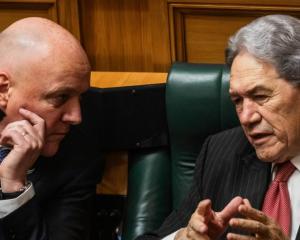Act leader Jamie Whyte told Radio New Zealand there were two different stories being told about the spying situation in New Zealand.
"I'm not sure what's true. If some of the allegations are true I would be concerned by them, but at this stage I think I'm pretty much in the position of all the other people in New Zealand and that is a bit lost and not knowing exactly what to believe."
Conservative Party leader Colin Craig told RNZ the core issue was whether Mr Key could be trusted.
"I have to say, I have doubts."
Mr Craig believed on balance there was mass surveillance of New Zealanders.
"I think John Key's been, shall we say, vague at best around the truth.
"And I think that matters, because we want to know that we can trust our leaders, trust our politicians and most importantly that our prime minister is at least either going to tell us the truth, or if he can't tell it because it's far too secure, maybe he can say, 'Guys, I can't tell you the answer to that'."
United Future leader Peter Dunne it was an "extraordinarily complicated issue".
"You've got the role that New Zealand plays in respect to its Five Eyes partners, you've also got what's going on in the domestic environment," he told RNZ.
Before changes were made to the spying legislation last year, the culture of the GCSB was out of control, he said.
"I think it really believed it was sort of up there with the big boys...and I'm not at all comfortable that they weren't doing things that they felt they could get away with."
The changes put in safeguards around the agency's actions, Mr Dunne said.
But Greens co-leader Russel Norman told RNZ the new legislation now enabled mass surveillance.
Mana Party leader and Internet Mana co-leader Hone Harawira said it took until US journalist Glen Greenwald arrived in the country before Mr Key admitted that he knew the GCSB was planning to spy on New Zealand citizens.
"And what's really worrying about that is even back in 2012, the GCSB had no authority, no legal right to conduct mass surveillance, so it was improper for them to even present the business case," he told RNZ.
"Clearly there are answers that need to be given."
Maori Party co-leader Te Ururoa Flavell also wondered who was telling the truth.
"That's the key [of the] matter," he told RNZ.













